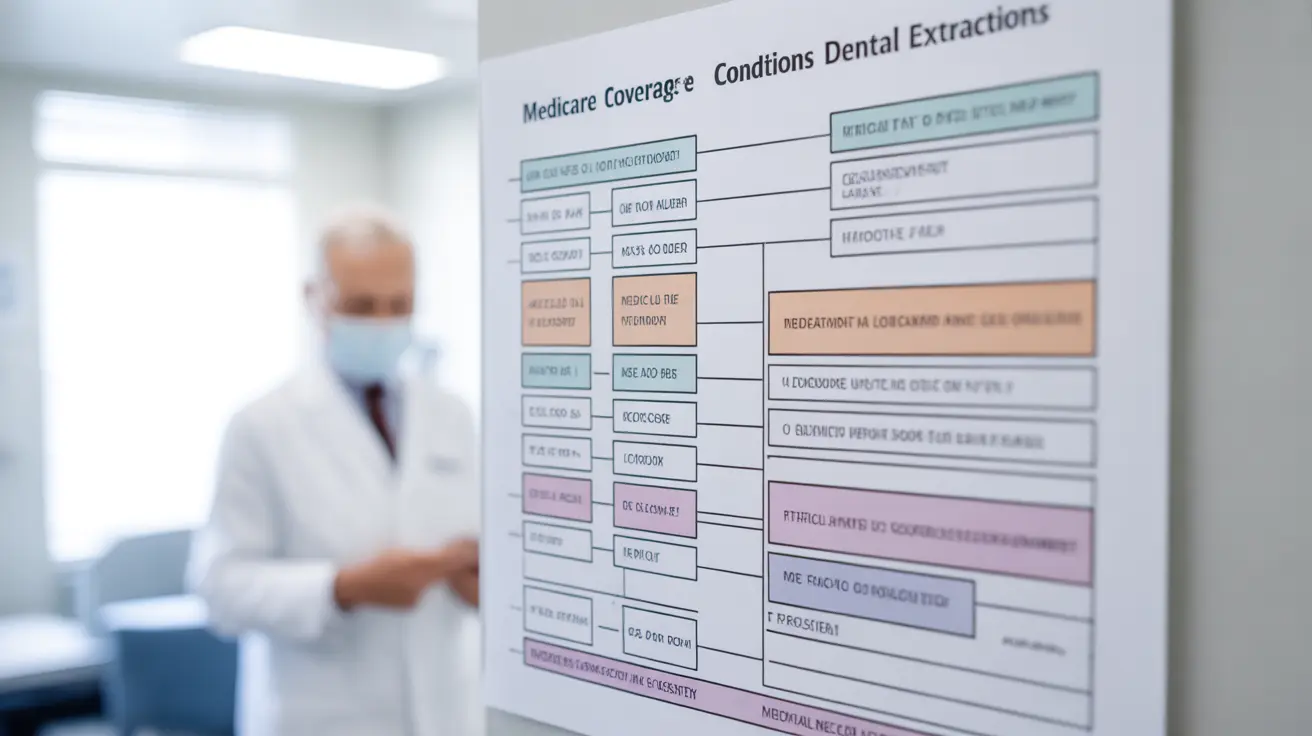Navigating Medicare coverage for dental procedures, particularly dental extractions, can be complex and often confusing for beneficiaries. While Original Medicare's dental coverage is limited, there are specific circumstances where Medicare will cover dental extractions, especially when they're deemed medically necessary.
Understanding when and how Medicare covers dental extractions is crucial for planning your healthcare expenses and ensuring you receive the care you need. Let's explore the various aspects of Medicare coverage for dental extractions and your options for dental care coverage.
Original Medicare Coverage for Dental Extractions
Original Medicare (Parts A and B) generally doesn't cover routine dental procedures, including standard tooth extractions. However, there are specific exceptions where Medicare will provide coverage:
- Emergency or complex dental procedures that are part of a covered medical procedure
- Dental extractions necessary for radiation treatment of neoplastic diseases
- Dental examinations required before kidney transplant or heart valve replacement
- Jaw-related procedures that require hospitalization
In these cases, Medicare Part A may cover your hospital stay if you need to be admitted, while Part B could cover the dental extraction if it's performed by a physician rather than a dentist.
Medicare Advantage and Dental Extraction Coverage
Medicare Advantage (Part C) plans often provide more comprehensive dental coverage than Original Medicare. These plans typically include:
- Coverage for routine dental extractions
- Access to a network of dental providers
- Annual allowances for dental services
- Coverage for other dental procedures like cleanings and fillings
However, coverage details, costs, and limitations vary significantly between different Medicare Advantage plans and providers. It's essential to carefully review your plan's dental benefits before scheduling a dental extraction.
Understanding Medical Necessity for Dental Extractions
For Medicare to cover a dental extraction, it must meet specific criteria for medical necessity. Common situations include:
- Preparation for radiation therapy affecting the jaw
- Severe infection threatening overall health
- Extractions necessary before major organ transplants
- Treatment of jaw fractures or damage
Documentation from your healthcare provider establishing medical necessity is crucial for Medicare coverage approval.
Costs and Payment Considerations
When Medicare covers your dental extraction, you'll still be responsible for certain costs:
- Medicare Part A deductible for hospital stays
- Medicare Part B deductible and 20% coinsurance
- Additional costs if using a Medicare Advantage plan
- Possible facility fees or related services
Alternative Coverage Options for Dental Extractions
If Medicare won't cover your dental extraction, consider these alternatives:
- Standalone dental insurance plans
- Dental discount programs
- Medicare Supplemental Insurance (Medigap)
- Community health centers offering sliding-scale fees
- Dental schools providing reduced-cost services
Frequently Asked Questions
Does Original Medicare (Parts A and B) cover dental extractions and under what conditions? Original Medicare only covers dental extractions when they're medically necessary as part of a covered procedure, such as jaw reconstruction, or when required before certain medical treatments like radiation therapy or organ transplants.
How do Medicare Advantage (Part C) plans differ in covering dental extractions compared to Original Medicare? Medicare Advantage plans typically offer more extensive dental coverage, including routine dental extractions. Coverage varies by plan but often includes preventive and basic dental services with specific annual allowances and network restrictions.
When are dental extractions considered medically necessary for Medicare to cover them? Dental extractions are considered medically necessary when they're integral to treating a medical condition, preparing for radiation therapy, before organ transplants, or when severe infection threatens overall health.
What costs can I expect to pay if Medicare covers my dental extraction? If Medicare covers your extraction, you'll typically be responsible for the Part A deductible if hospitalization is required, or the Part B deductible and 20% coinsurance for outpatient procedures. Medicare Advantage plan costs vary by provider.
Are there options besides Medicare to cover routine dental extractions and other common dental care? Yes, alternatives include standalone dental insurance plans, dental discount programs, Medigap policies, community health centers, and dental schools. These options can provide more comprehensive coverage for routine dental procedures not covered by Medicare.




